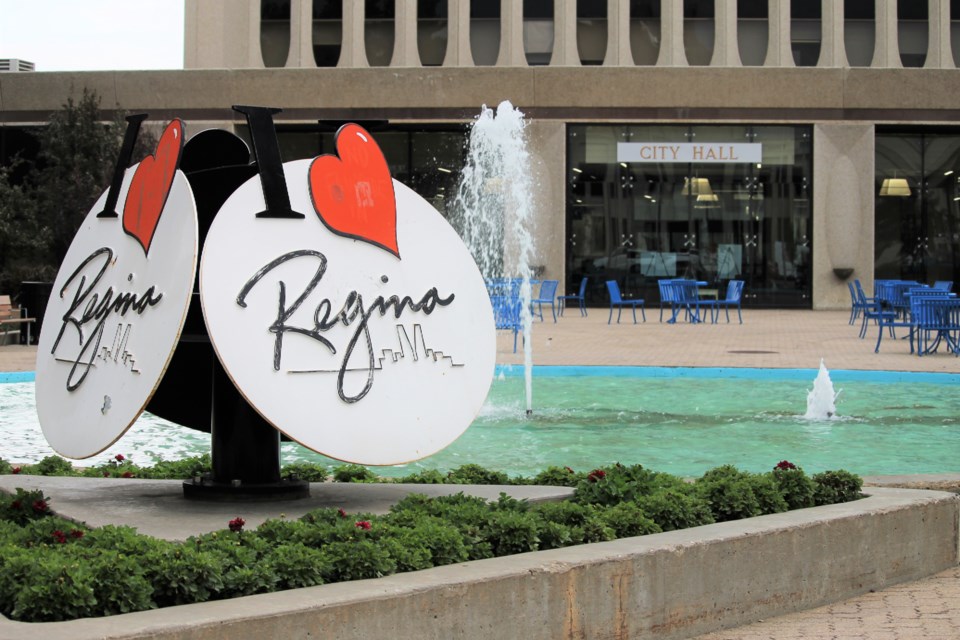REGINA — Regina’s executive committee has given its approval to the transit master plan presented Wednesday.
The plan went through by a 9-1 vote following a lengthy meeting, which means the next step is for it to go to the full council meeting May 4.
The master plan document covers the next 25 years of transit in the city, and is the first transit master plan that Regina has ever had. According to the document the founding principles of the plan are accessibility, sustainability and age friendliness.
According to the document, the focal point of the existing transit network is downtown and 11th Avenue, with most routes scheduled to arrive at 11th Avenue around the same time.
What is proposed in the master plan is for 11th Avenue to be removed as a central point for all stops downtown. Instead, main and local routes will have key stops on their corridors allowing for transfers between services while minimizing detours through downtown.
As well, buses will no longer be timed to arrive and depart downtown simultaneously, or idle for extended periods on 11th Avenue, according to the document. The idea is to have faster journeys through the downtown as well as more connection opportunities at more locations.
The document also outlines the plan for the long-term network over a 10- to 25-year time frame. That includes proposed service improvements, including for Bus Rapid Transit which would operate in dedicated travel lanes. The plan calls for Bus Rapid Transit to operate on main route corridors, and may also be implemented at select locations on local routes.
There were also provisions in the plan for paratransit, with one change proposed being to change the eligibility process to include assessment by health care professionals.
Also included are provisions regarding fares and trip planning. One key proposal in the plan is to have users under 12 years old being able to use transit for free.
The plan calls for implementation of the proposed network structure with enhanced service coverage and expanded hours of operation. The intention is to review the service plan annually, and to increase the number of Regina transit staff to implement the new system.
There are short-term, medium-term and long-term plans outlined in the document regarding rollout of the schedule. Most of the plan elements would be brought in from 2023 to 2030, including introducing the main routes, implementing proposed local route and downtown network and planning the implementation of alternate energy vehicles.
There are also mid-term plans between 2028-40 as well as long-term plans between 2038-47. These would include items such as replacing and growing the bus fleet with electric vehicles, growing a demand-responsive fleet and establishing transit hubs and neighbourhood hubs, for instance.
Council heard from Thomas Pacy of Dillon Consulting about the master plan. He told the committee that it was a community-led plan that was developed in consultation with the public through workshops and surveys.
He cited the benefits of the transit system, and said Regina Transit currently does a good job of being efficient, with lower costs per hour as well as an accessible modern fleet with less resources than its peers.
“However, going into the future, the city is growing, the number of rides on transit has grown significantly, but there has been very little additional service provided to cater for that growth,” Pacy said. “The status quo is not going to be able to facilitate much more growth … as those growing pains hit, you are going to need to provide more transit, otherwise you aren’t going to be able to keep going down this path.”
The meeting was a lengthy one with numerous delegations providing input. One presenter, Jim Elliott, felt the plan only provided “tentative steps” and wanted the age for free transit to be extended up to 18.
Later a high school student, Sophia Young, presented virtually to the committee. She expressed excitement about the transit master plan, but expressed her concerns about the current transit system, pointing to barriers including “long wait times, ineffective transfer times and price.”
She explained the reason she couldn’t attend in person at City Hall was because “it takes 40 minutes and two bus transfers to get there.” Young also noted she couldn’t miss a single bus because if she did, she would be 30 minutes late.
The transit plan now heads to city council next week for further discussion and approval.


